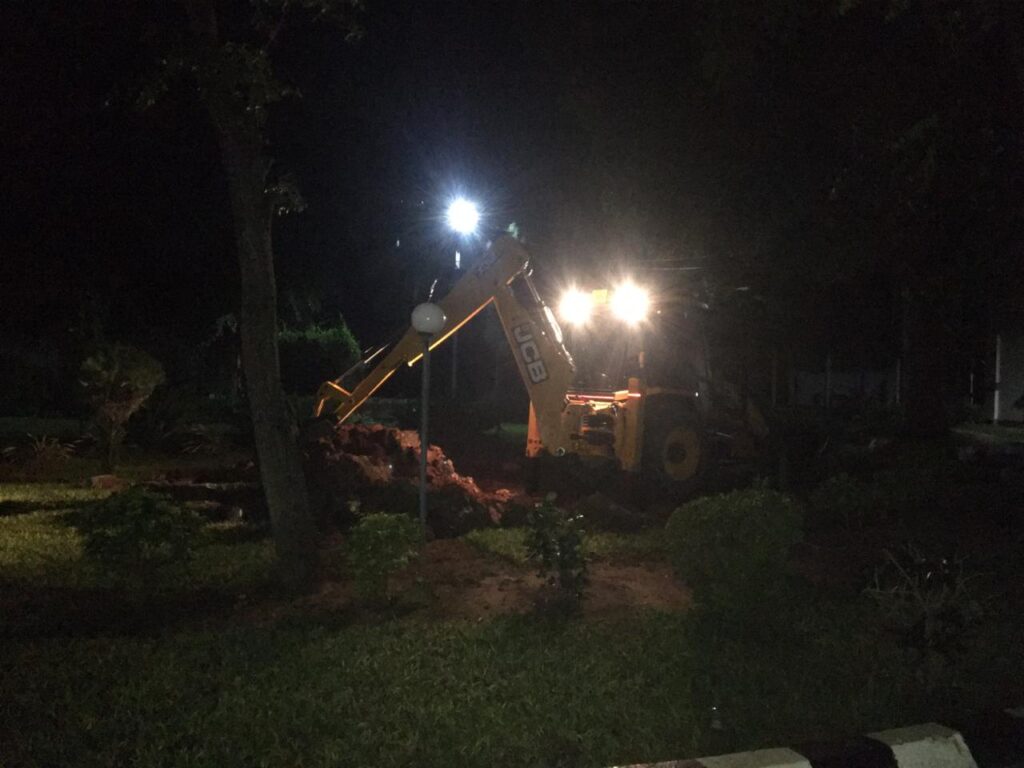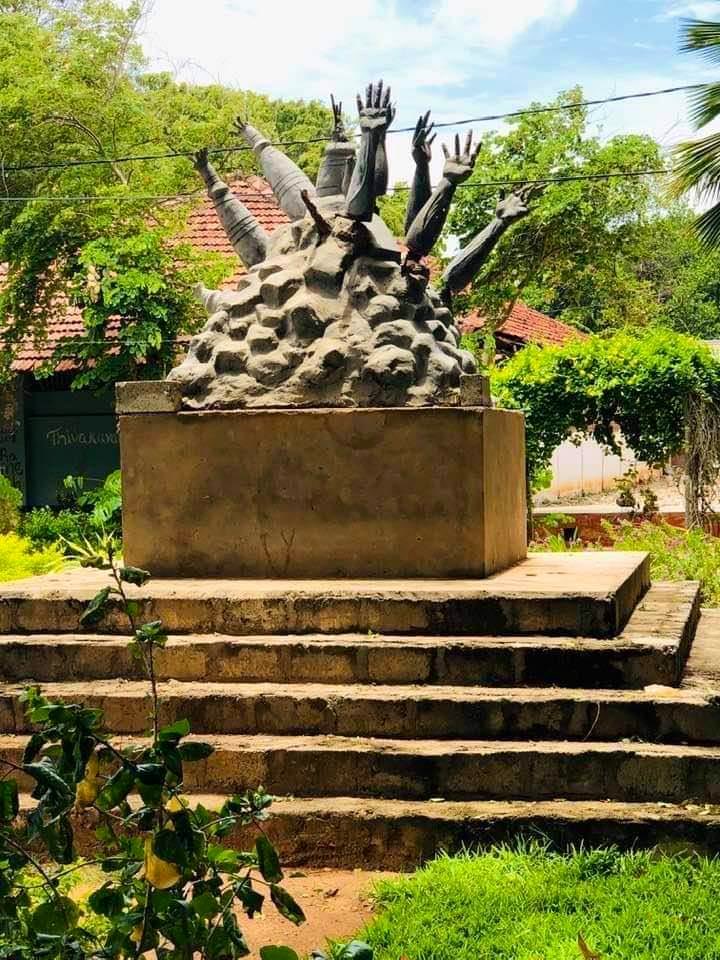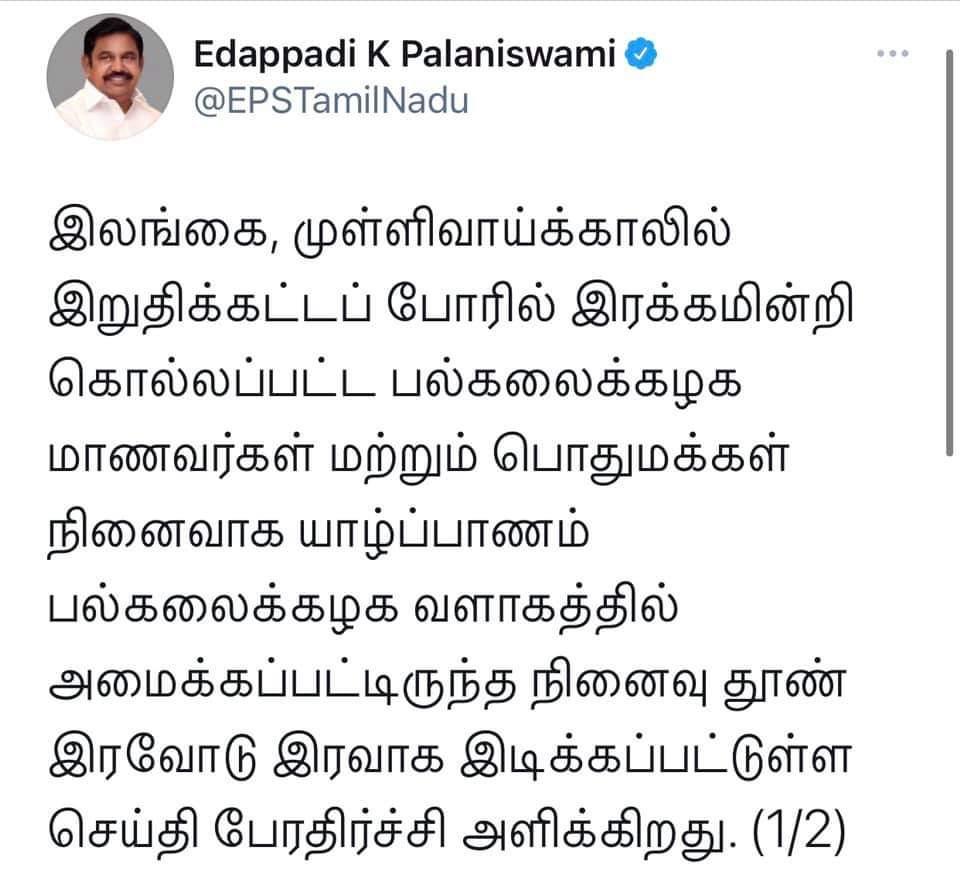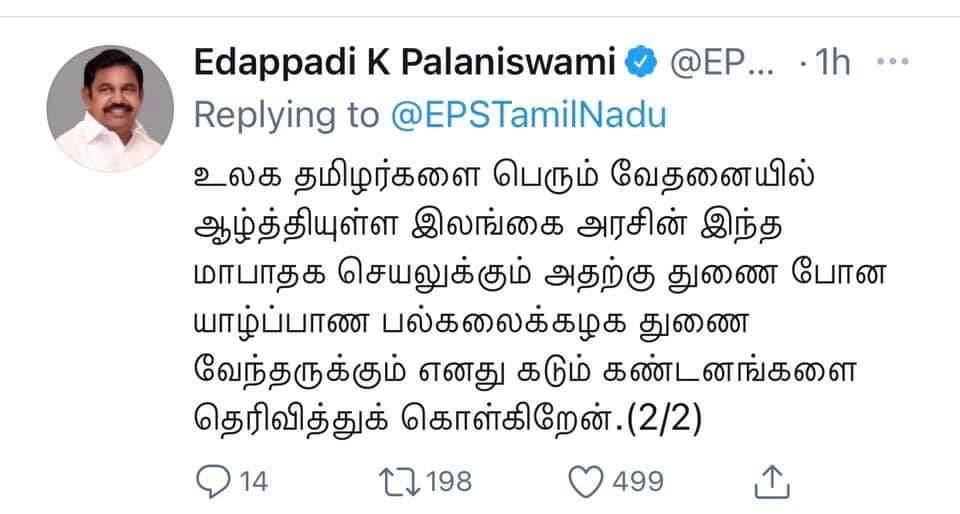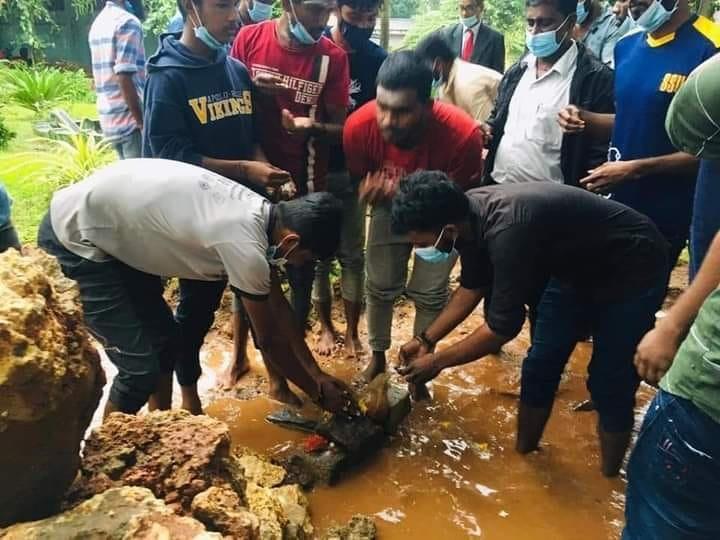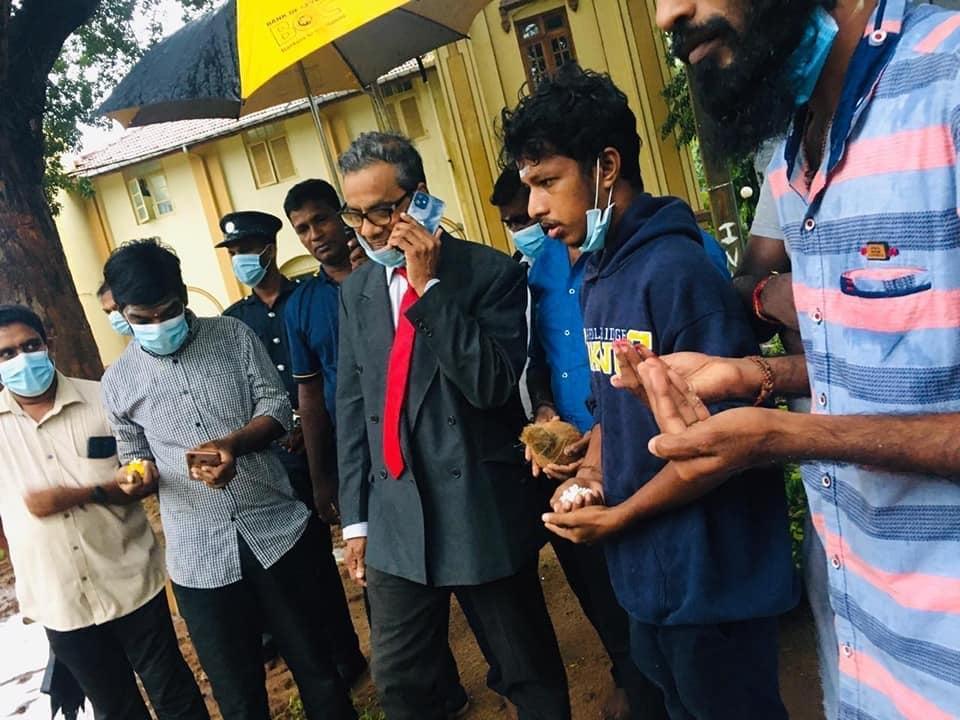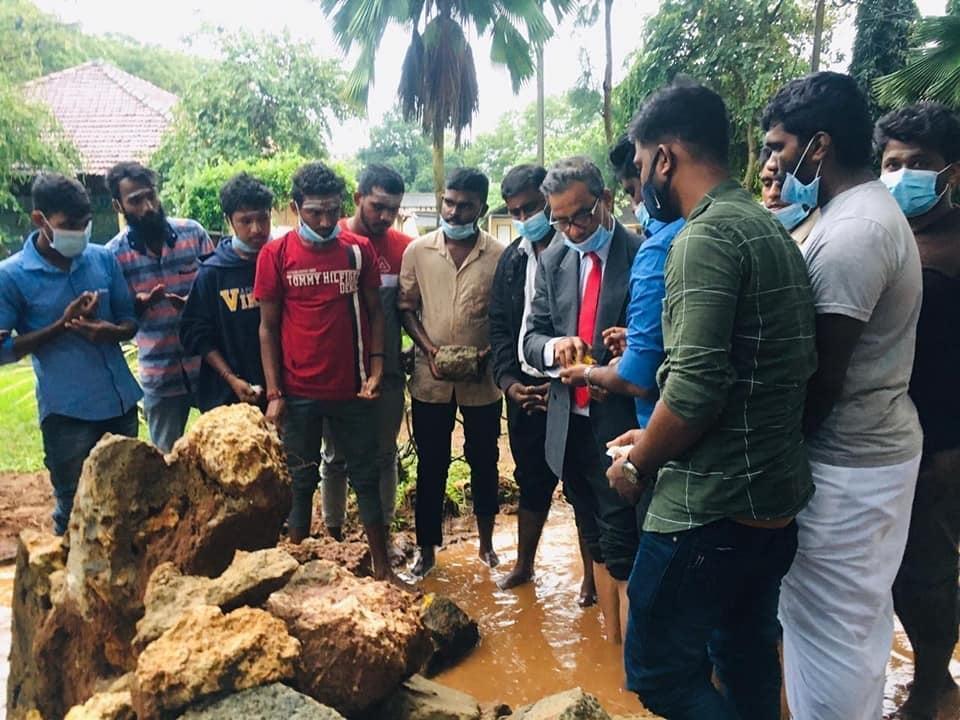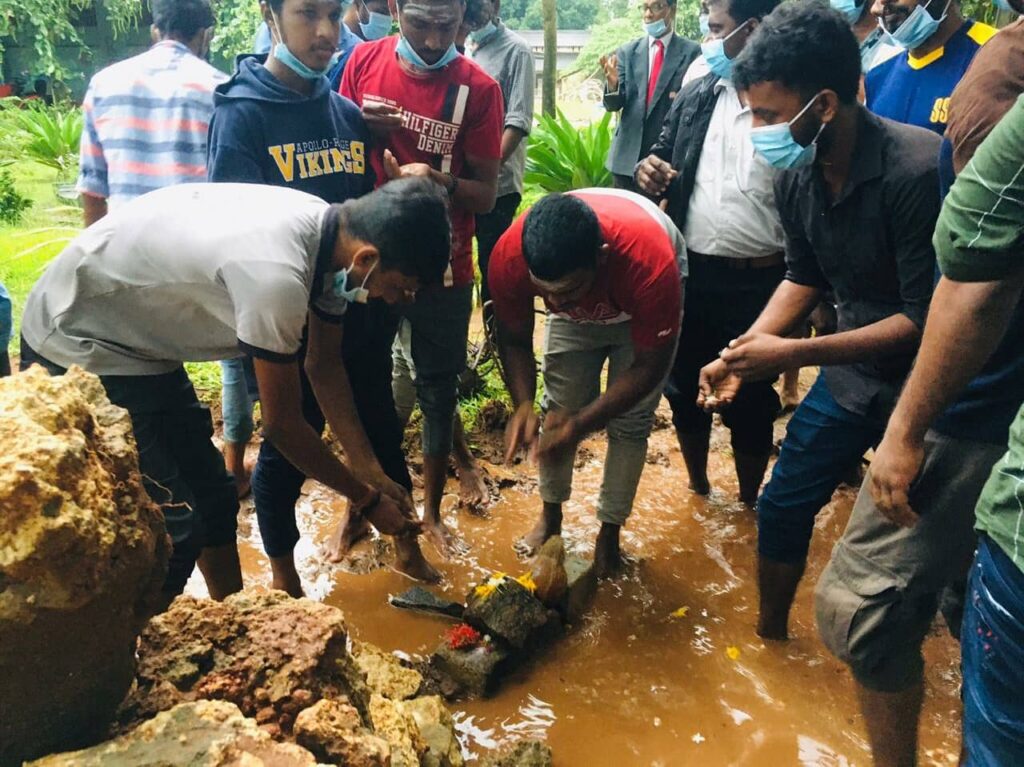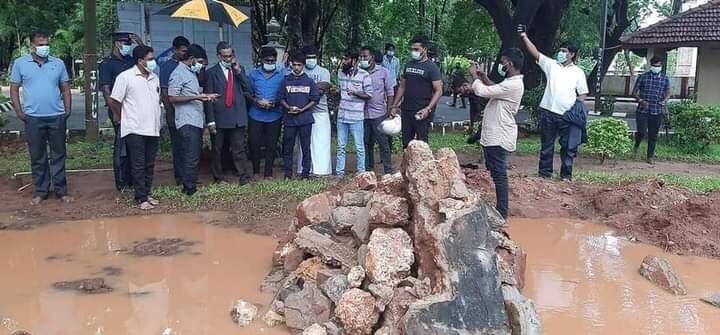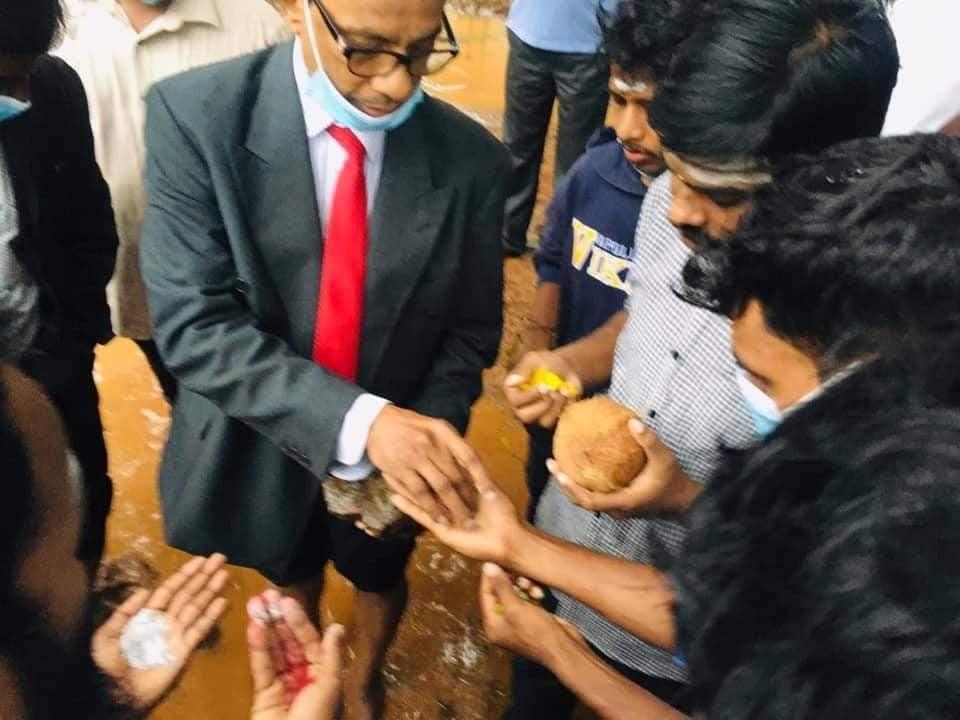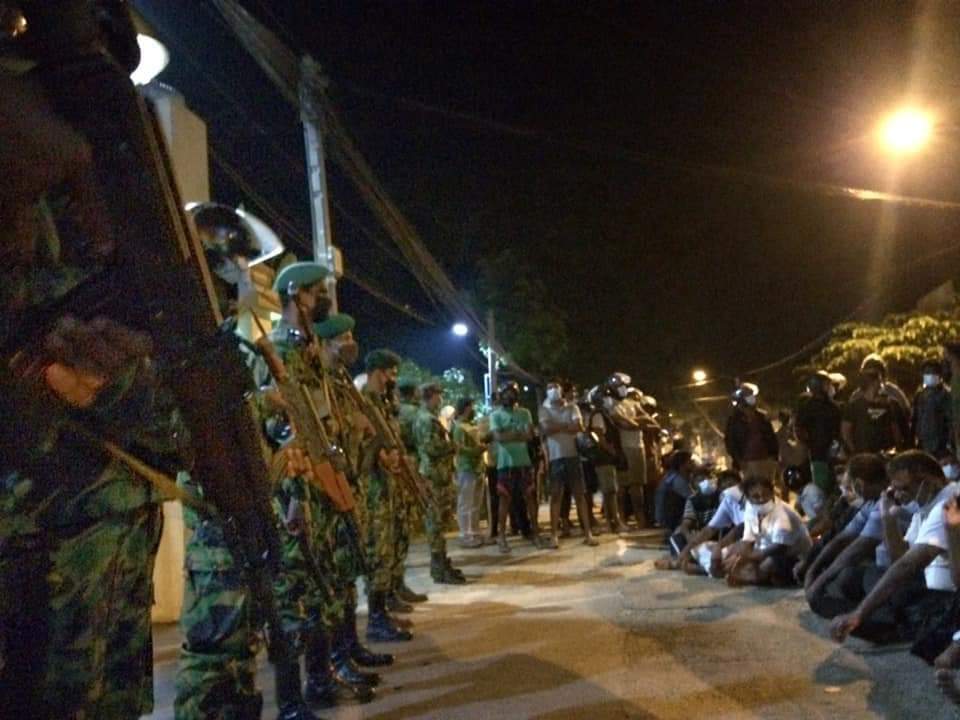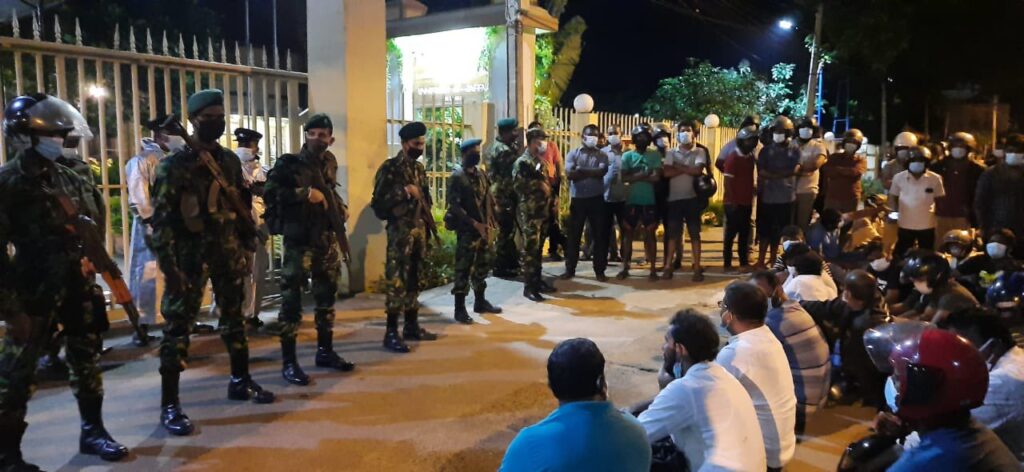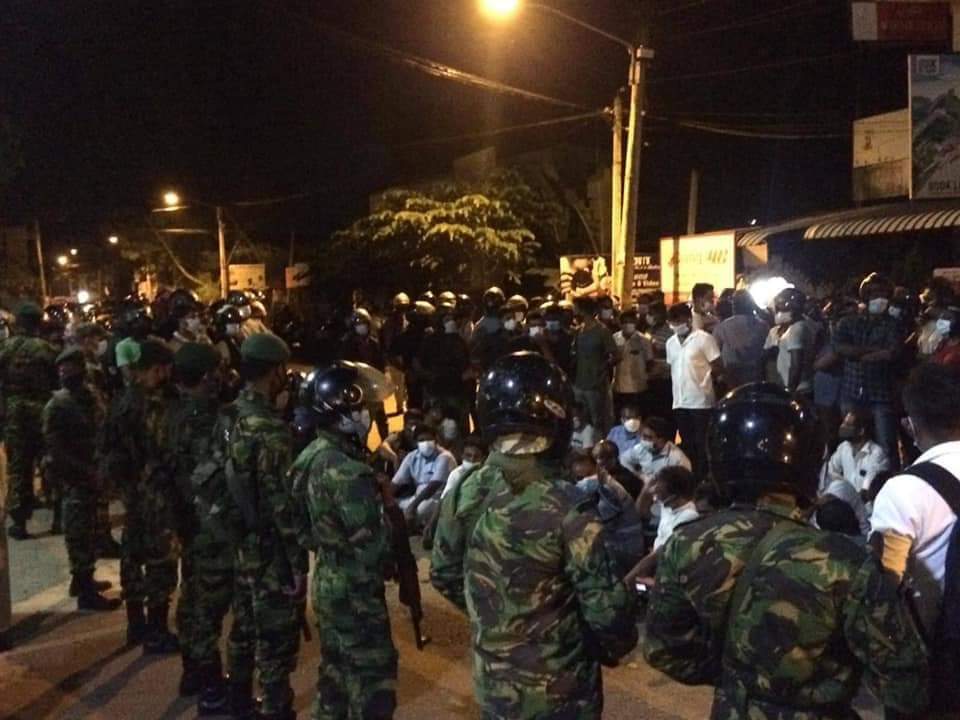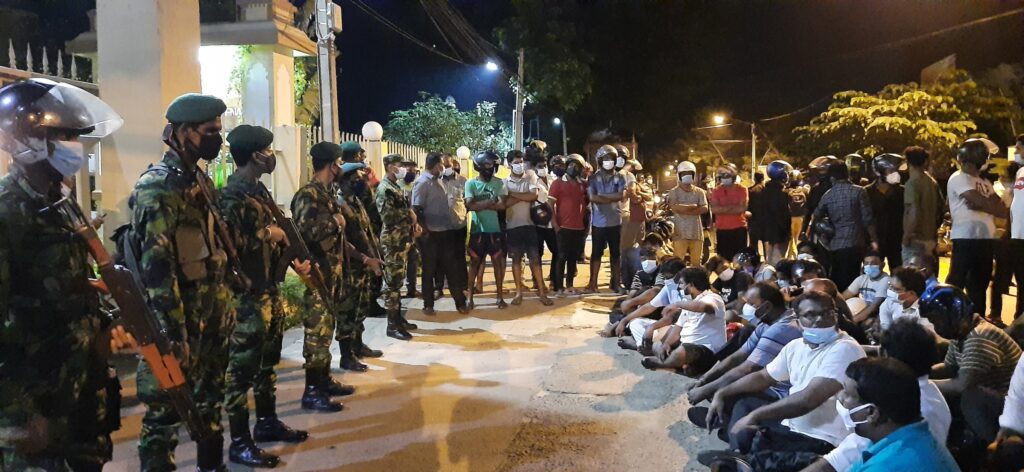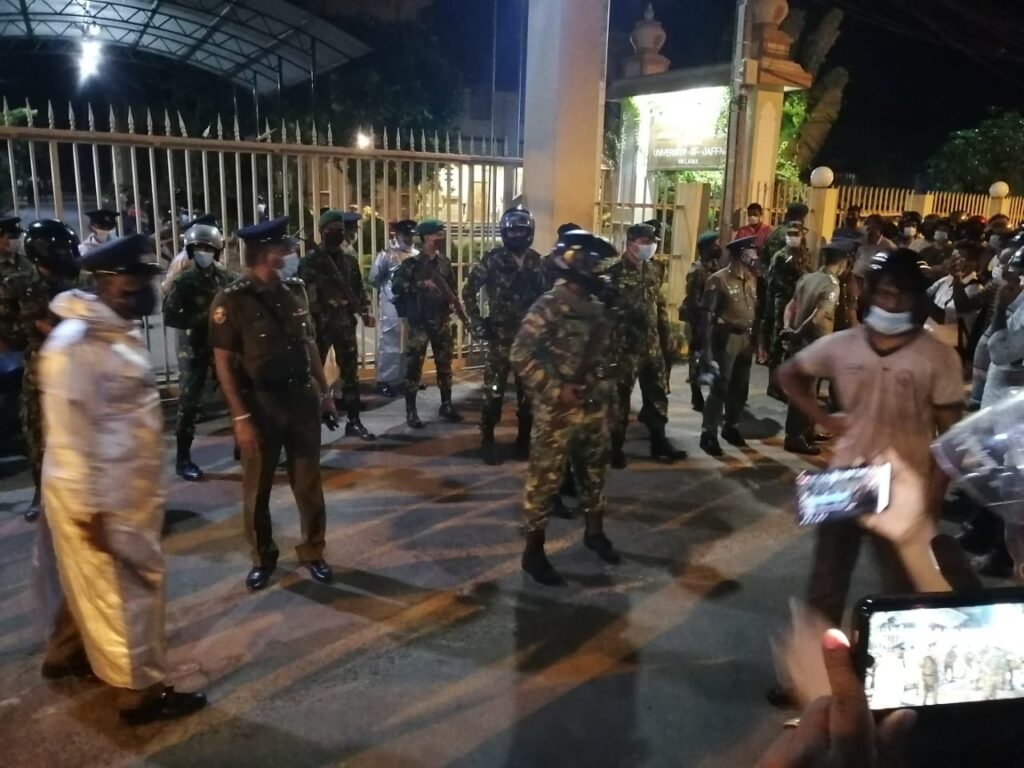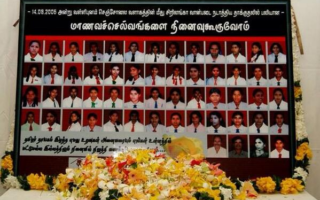On the night of 8th January 2021, Eelam Tamils faced news of the demolition of the Mullivaikal Genocide Memorial Monument by Sri Lankan state forces, one that was erected in the grounds of the University of Jaffna in 2019, the tenth year memorialisation of the horrendous mass murder of Eelam Tamils in the Vanni region. The Sri Lankan Special Task Force guarded the gates of the University when students and locals hearing of the destruction attempted to interfere.
Eelam Tamils meet yet another attempt at destruction of their memory in their six decade long, continued oppression of chauvinist, Sinhalese ideologies by occupying Sri Lankan military and police forces. Commemoration events of all kinds, whether it be memorialisation of the Mullivaikal genocide in 2009 or the remembrance of Maaveerar (Great Heroes), held by Eelam Tamils have always been subject to mass intimidation and State violence. Tamils have often anticipated coercive acts by the State when organising such events, but this destruction of the Monument has shook the nation in the homeland and thousands in the diaspora like no other. It has illustrated the extent Sri Lanka is determined to go in order to re-write the events that unfolded in the Vanni region in 2009.
Since the destruction on Friday night, events had unfoldedthroughout the weekend, in protest against the Sri Lankan forces both in the homeland and abroad. Tamils and Muslims in the North-East wasted no time in demonstrating against the inhumane act by peacefully protesting outside the University. Hunger strikes were led by University students demanding for immediate condemnation of the destruction from parliamentarians and civil societies. In the diaspora, Tamils from all over the West took their protest onto social media creating an outrage of demands calling on their host countries to condemn the destruction and ensure that the demands of the protestors in the homeland are met. Over 25 Tamil societies from British universities and the Tamil Youth Organisation released a statement also urging for the demands of the protestors in Jaffna to be met whilst further demanding for meaningful actions to ensuring protection of Eelam Tamil identity against Sri Lankan state genocide. A socially distanced car rally organised by the Canadian Tamil diaspora demonstrated a peaceful, solidarity message to the people in the homeland.
The strong calls from Tamil Nadu condemning the destruction after seeing the mass social media protests further exemplified that the Eelam Tamils’ trauma from the 2009 onslaught and their continued resistance under Sri Lankan occupation is not one that is faced alone.
The sheer number of outcry by and for Eelam Tamils and the mobilisation that unfolded throughout the weekend resulted in immediate action from the Vice Chancellor of the University on Monday morning, pledging to rebuild the Monument and putting an end to the hunger strike by the students.
It is no surprise the level of international pressure and mobilisation required for Sri Lanka to respect the basic rights of the Tamils in the North-East, such as the right to memory. Nevertheless, for Tamils who experience the trauma of the continued oppression of the State, it is necessary to question what the messages are from this act of destruction.

